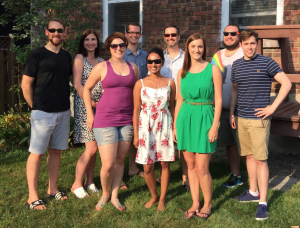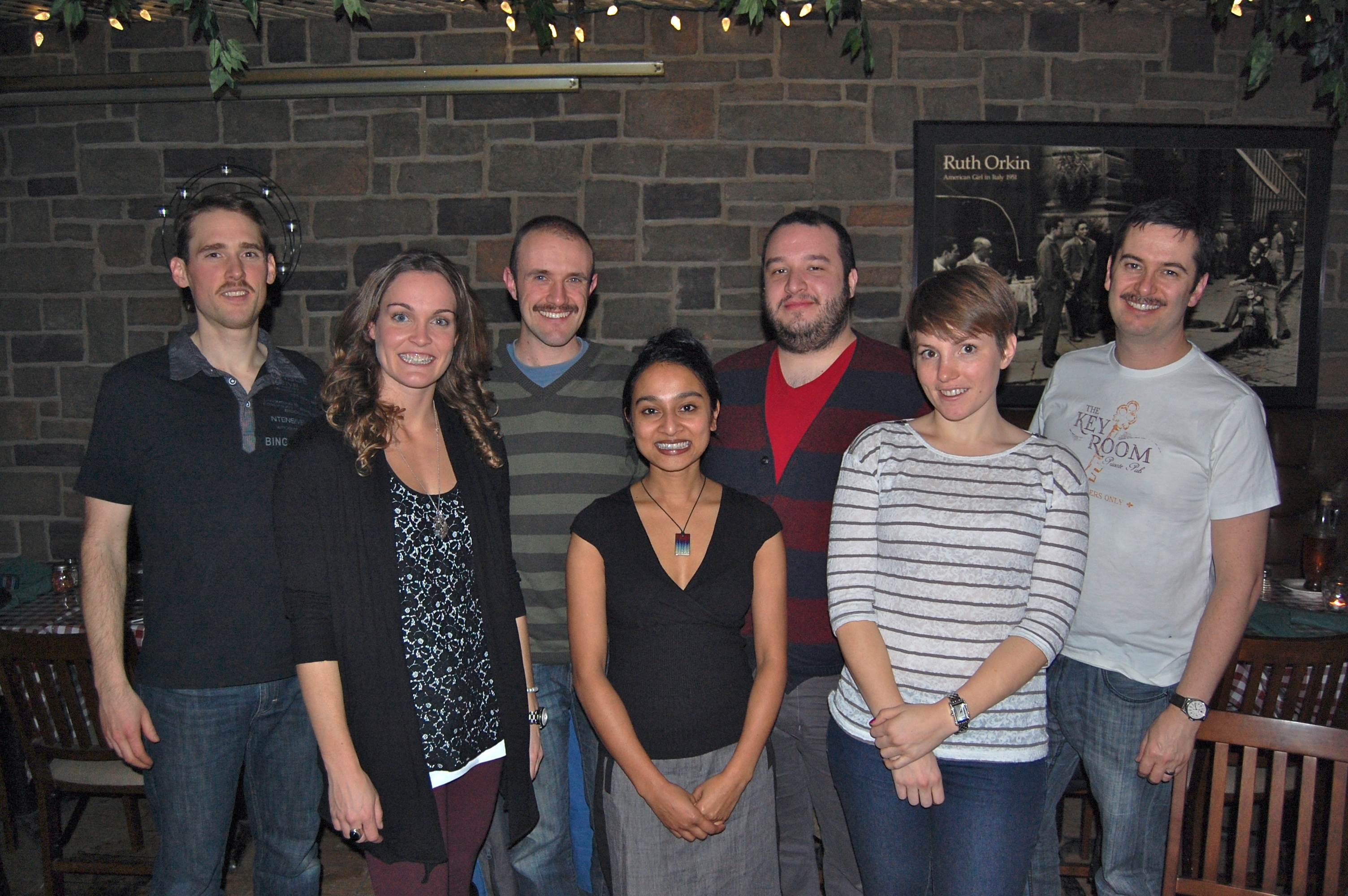The following set of values reflect our collective ideals for a safe, inclusive, encouraging, and productive lab. Each member of the lab, from our director to our newest student, will endeavour to embody these ideals, be kind to themselves and others when they fall short, and take every opportunity to learn from their mistakes and to do better.
The mission of the APEAL Lab is to do mental health research that makes a difference. We strive to work as a team, to always be learning, to try to contribute to the communities that we work and live in, and to have fun while we are doing this.
Although academia inevitably involves competition, this lab is a team. The success of any individual member reflects on the lab as a whole. Share credit, be generous with authorship, listen to the ideas of others, be genuinely happy for the success of your peers, and assist the work of others.
We strive to help our members develop as professionals, but also as people. Our members’ physical and mental wellbeing is central to our success. Academic success cannot come at the cost of mental and physical health. Be kind and take care of yourself. If you have any arising concerns, we encourage you to discuss them with the Director or senior members of the lab.
Our lab members come from a wide variety of backgrounds. Discrimination on the basis of race, sex, gender, religion, sexual orientation, or identity is unacceptable. We are vigilantly opposed to racist, sexist, misogynistic, homophobic and transphobic behaviour and language and will seek to create an open, inclusive, space for the sharing of ideas and the professional growth of lab members.
Be mindful of microaggressions. Microaggressions are subtle, often unintentional behaviours, comments, or interactions that betray our unconscious biases. Though they are more subtle than overt, intentional racism, homophobia, or sexism, microaggressions can be just as damaging. Microaggressions are insidious because they are often not recognized as offensive by the person committing them. Some examples of common microaggressions include commenting that a person of colour speaks English very well, or assuming a female academic is more junior than a male colleague. If you experience or witness microaggressions in the lab, speak up if you feel comfortable doing so. We all want to be better, and to do better. If someone raises concerns with you about microaggressions, do your best to listen without defensiveness.
The APEAL Lab is a community, and in addition to conducting good science, we strive to build social connections within this community as well. We often attend social events at restaurants, pubs, and one another’s homes, or eat lunch together on campus. We believe these social connections are an important part of being in a lab. However, they can also blur boundaries, when labels like employer, advisor, and friend start to collide. Our priorities will always be on our advisory roles, and on ensuring that no lab member receives special treatment based on their interpersonal relationships with other members. We will strive to grant equal opportunities to all members, and to recognize and celebrate the achievements and contributions of all members equally. If you perceive the blurring of boundaries to be an issue resulting in unfairness or discomfort for you or others, please don’t hesitate to communicate this to the Director or senior lab members – we know that building connections and friendship is critical for both our productivity and our mental health, but we also strive to ensure that we can create a safe, fair, and open working environment for all lab members.
We also want our social events to be inclusive and enjoyable for all members of the lab. We will strive to offer a wide variety of activities that all can enjoy, and we welcome the input of all lab members when selecting these activities.
The APEAL Lab is a team – we do not condone discrimination in any form, and we aim to lift up the work and voices of all members. We will continue to hold each other accountable, to learn, and to grow in order to create a truly inclusive, productive working, learning, and collaborative environment.
Useful Readings and Resources
Ten Rules for Building an An Antiracist Lab (Chaudhary and Berhe, 2020)
-
Lead informed discussions about antiracism in your lab regularly
-
Address racism in your lab and in [your potential outputs]
-
Publish papers and write grants with BIPOC colleagues
-
Evaluate your lab’s mentoring processes
-
Amplify voices of BIPOC scientists in your field
-
Support BIPOC in their efforts to organize
-
Intentionally recruit BIPOC students and staff
-
Adopt a dynamic research agenda
-
Advocate for racially diverse leadership in science
-
Hold the powerful accountable and don’t expect gratitude
Glossary of Important Terms (Chaudhary and Berhe, 2020):
Microaggressions – further reading:
1. https://www.nytimes.com/2020/03/03/smarter-living/how-to-respond-to-microaggressions.html
Antiracism in Epidemiology and Academia:
2. Antiracism Resources for Epidemiologists & Public Health Researchers (credit to Ariel Beccia, PhDc Epidemiology, University of Massachusetts Medical School)
3. Nature Career Column: Racism in academia, and why the ‘little things’ matter
4. Scientific American: Sex and race discrimination in academia starts even before grad school
Sexism:
1. You Should’ve Asked: A Feminist Comic: https://english.emmaclit.com/2017/05/20/you-shouldve-asked/
2. Book recommendation: Invisible Women: Exposing Data Bias in a World Designed for Men – Caroline Criado Perez
3. Women, know your limits: cultural sexism in academia
4. Science: Academia needs to confront sexism
Mental Health and Support Resources:
1. Ottawa Mental Health Crisis line (available 24/7): 613-722-6914
2. Crisis line outside of Ottawa: 1-866-996-0991
3. Good2Talk Post-Secondary Student Helpline: 1-866-925-5454
4. Canada Suicide Prevention Service (available 24/7): 1-833-456-4566
5. Sexual Assault Support Centre of Ottawa: 613-234-2266
6. University of Ottawa Mental health services
7. University of Ottawa protection services:
To report an emergency: 613-562-5411 (or ext. 5411)
Non-urgent matters: 613-562-5499 (or ext. 5499)
8. Accessibility (human rights office)
9. University of Ottawa sexual violence support and prevention
10. Office of the ombudsperson (for academic issues that cannot be resolved through discussion with the lab’s Director)
Any suggestions? Feel free to email the lab director (icolman@uottawa.ca).




